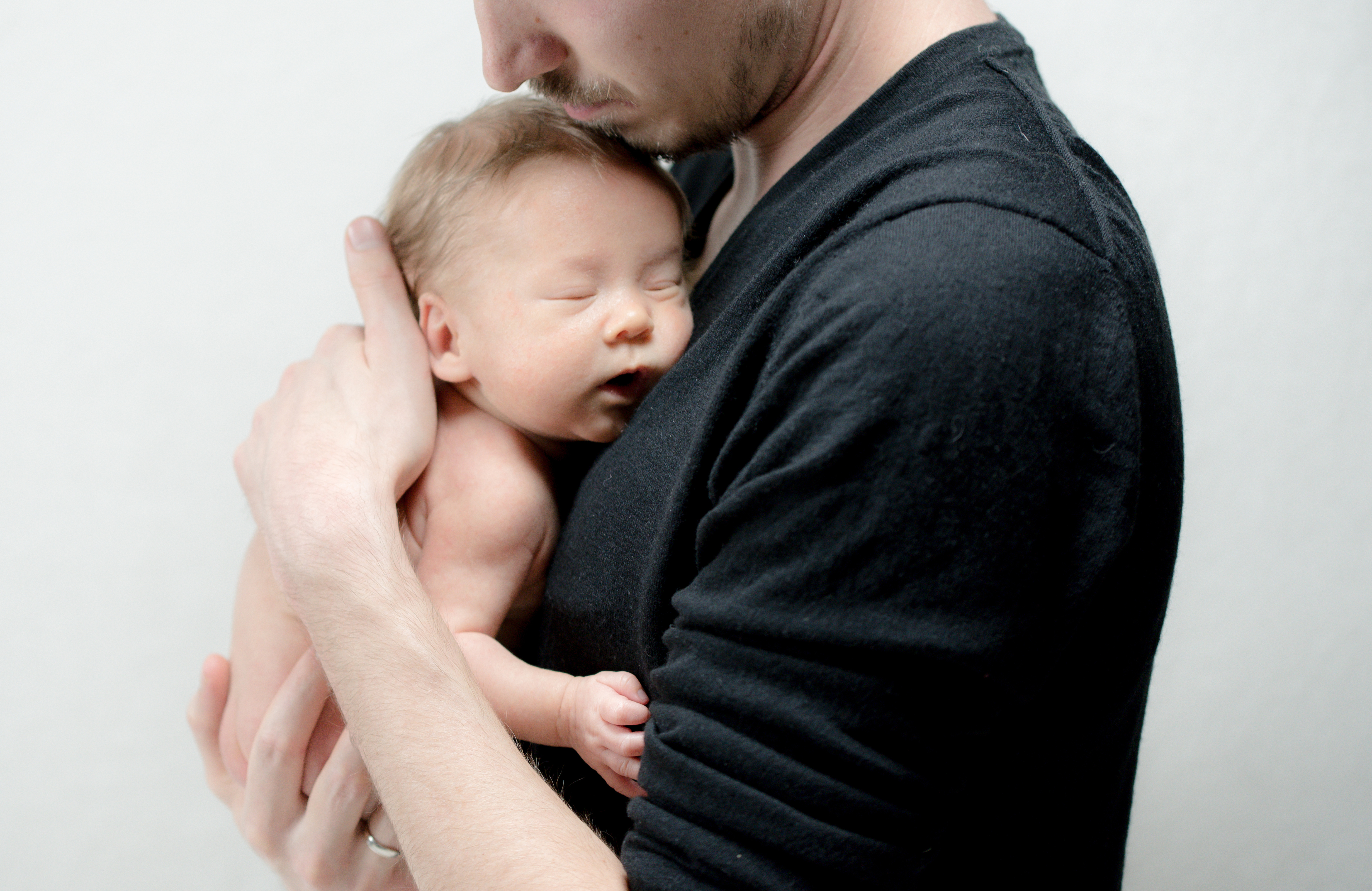In recent years, postpartum depression in women has become increasingly legitimized as a medical condition. Several studies have documented the link between the hormonal fluctuations experienced after giving birth and overwhelming feelings of depression and anxiety. A handful of celebrities, including Gwyneth Paltrow, Brooke Shields, and most recently, Ivanka Trump, have lifted some of the stigma surrounding the illness by sharing their own stories of postpartum depression.
But can men suffer from postpartum depression, too? Recent studies have suggested that up to 7 to 10 percent of new fathers experience symptoms similar to those found in postpartum depression, which is believed to be experienced by 12% of mothers.
A new study, performed by the University of Southern California, has demonstrated a link between lowered testosterone levels and depressive symptoms in new fathers.
“We know men get postpartum depression, and we know testosterone drops in new dads, but we don’t know why,” Darby Saxbe, professor of psychology at U.S.C. and an author of the new report, told The New York Times.
Testosterone dropping in new fathers in the animal kingdom has been widely documented. Human males exhibit the same phenomenon; in one of the largest studies done on testosterone and fatherhood, 600 men were studied over the course of five years. Fathers who spent more time with their children showed lower testosterone, suggesting that the hormone may be suppressed by paternal caregiving.
But the U.S.C. study takes it a step further and claims that this lowered testosterone can gravely affect a man’s mental health. The Times told the story of Rob Sandler, a marketing executive in Texas, who was overwhelmed by the demands of new fatherhood, and had a panic attack when his friends left after his infant son’s bris. “I had this feeling that they were leaving and I was stuck in this situation that would never get any better,” said Mr. Sandler.
Previous studies have shown that new fathers experiencing depression are less likely to read to their children and more likely to spank them. Mr. Sandler felt a sense of hopelessness about his ability to be a good parent.
Still, despite the studies and personal stories, many mental health experts have hesitations about comparing father’s depressive symptoms to the postpartum depression experienced by women.
“There’s no question the perinatal time is one of the hardest for both men and women,” Dr. Samantha Meltzer-Brody, a professor of perinatal psychiatry, told The Times. “But the process of birthing and the hormonal gymnastics that women experience is on a different planet.”
Not everyone agrees; Will Courtenay, a psychologist and author of “Dying to Be Men: Psychosocial, Environmental and Biobehavioral Directions in Promoting the Health of Men and Boys,” counters that men can, in fact, go through extreme hormonal fluctuations, just like women. He moreover cautions against making men feel like their depression is less valid, saying “there is a very powerful myth in this country that men don’t get depressed, or if they do, they shouldn’t express it,” and that this keeps many men from getting the help they need.
Since 2007, Dr. Courtenay has run the website Postpartummen.com, a forum that aims to support new dads experiencing mental health issues.
Whether or not men can experience a hormonal rollercoaster with the same amount of climbs and drops as a woman needs further research. But one thing the experts agree on is that if a man is struggling with mental health, he should reach out for help. As Mr. Sandler began working with a psychiatrist and taking medication, he eventually felt an evening-out of his ups and downs and began to see fatherhood as “a wonderful experience.


